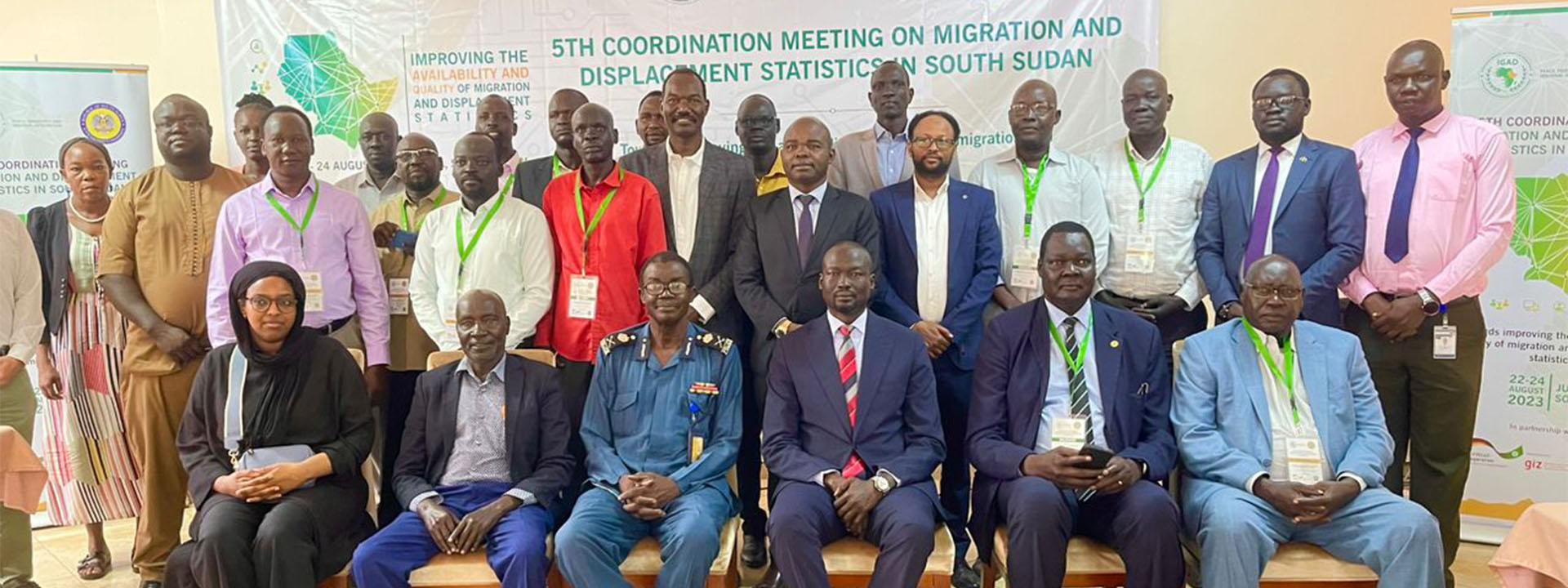August 22-24, 2023 (JUBA, South Sudan): 24The Government of South Sudan with support from IGAD, convened a 3-day meeting for its 5th National Coordination Meeting on migration and forced displacement data to improve the availability and quality of migration and displacement statistics in South Sudan.
The meeting that took place on the 22nd to 24th August 2023 gathered focal points from 17 Ministries, Departments, and Agencies, and partners to share the availability of migration and forced displacement data, challenges they encounter in production, analysis, and utilization, and the way forward for their institutions to harmonize data for the purpose of effective decision/policy making purposes.
The national coordination meeting acknowledged the significance of timely data collection by the relevant government institutions, the need to have harmonized tools and standards to collect data, and the importance of data for the government. The participants further agreed that there is limited technical capacity in their areas of data collection, standard indicators, data analysis, and dissemination in regard to migration and displacement. The National Bureau of Statistics is the leading institution in archiving the relevant data on migration and forced displacement.
Speaking on behalf of the Executive Secretary of IGAD, the South Sudan Head of Mission, Dr, Aleu Garang recognized the importance of coordinating migration and displacement statistics to the Government of South Sudan. “This initiative underscores our commitment to understanding the dynamics of population movement and displacement, and the profound impact it has on our society, economy, and overall development.”
Mr. Mark Otwari from the South Sudan National Bureau of Statistics committed the institution’s role in strengthening the quality of data through its role as the custodian of data in South Sudan. He affirmed that data stands as an indispensable instrument, crucial in aiding the South Sudanese government to craft well-informed choices and formulate pivotal policies.
Key recommendations drawn from the coordination meeting include establishing the pivotal role of the National Bureau of Statistics (NBS) in spearheading the harmonization of data collection methodologies and tools. Additionally, stakeholders in the realm of Migration and Displacement were urged to strengthen their collaboration and coordination, thereby enhancing the processes of data collection, management, analysis, dissemination, and use.
IGAD addresses the migration and displacement agenda through its Regional Migration Policy Framework (RMPF), which offers a comprehensive policy approach to govern migration and displacement challenges within the region. The RMPF mandates the IGAD Secretariat to establish and harmonize migration data, reinforcing the collection and analysis of migration and displacement data. National and regional-level coordination structures are created to support these policy commitments while leveraging existing structures.

